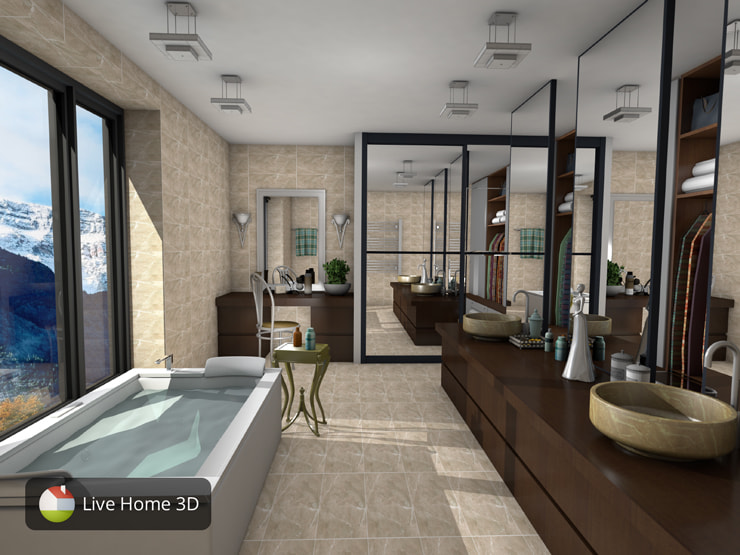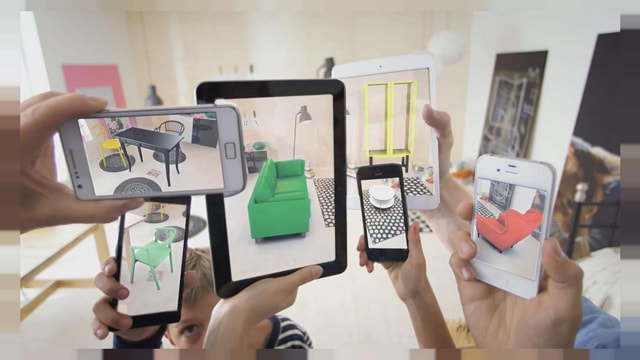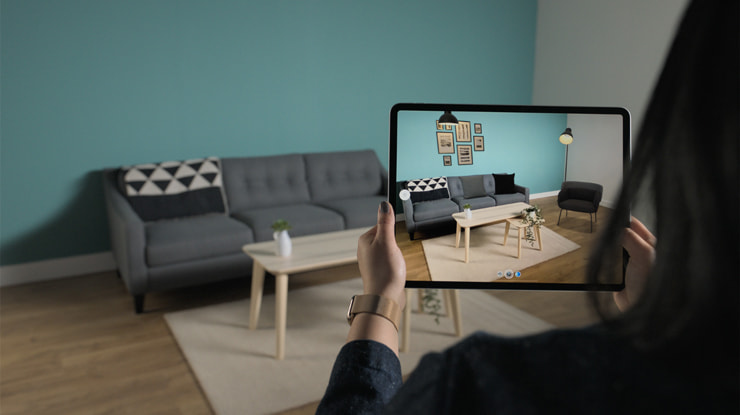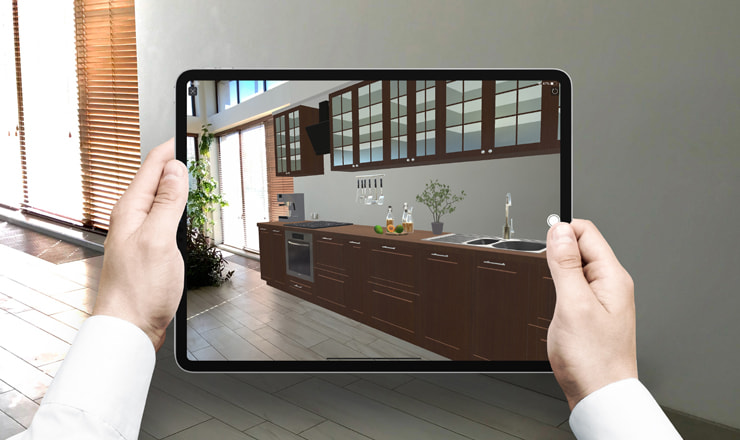Interactive Experience
The most important novelty AR technology brings to the home and interior design field is a highly interactive experience. Nothing can be compared to trying out 3D models in a real-world environment and evaluating them from the outer and inner sides.

Areas Where AR Comes Helpful
How can Augmented Reality be used in home and interior design? Here is the list of interior design fields in which AR can be successfully used for enhancing the perception or evaluation quality.
Real-Estate Sales and Rental
AR models of real apartments and houses provided on real estate agency websites offer a futuristic approach to viewing the objects, minimizing the need to visit the actual houses in person. Realtors will sure love the advantages this technology brings them!
Interior Design
With the help of Augmented Reality, interior designers can immensely enhance the visual presentation of design projects for their clients. This way is much more vivid than screenshots or videos.

Furniture Manufacturing
Furniture, decor and accessory manufacturers now have an opportunity to showcase their objects inside real interiors by creating the AR models of their items. The ability to try them in one’s own house is better than a thousand photos.
Interior Design Courses
AR (Augmented Reality) is a new trend to be studied at interior design courses where you can learn the new technological approaches in this field. Live Home 3D has a special education program that will help design courses to easily add this topic to their curriculum.

DIY Home Renovation
Any time one has a home renovation project, Augmented Reality can come in handy to find out if the color choice is right for them or if a desirable sofa fits the decor.
Helpful AR Home Design Apps
Here are some popular AR apps in the interior design field:
- Live Home 3D – a home design app for making great interiors and houses of any level of complexity.
- Houzz – Home Design & Remodel – the app for designing, building, re-modeling and decorating supporting AR technology.
- Decor Matters: Design & Shop – a design and shopping tool for finding decorations for the house.
- Amazon — Shopping made easy – you can purchase furniture and home decor and use the “View in your room” feature to evaluate whether it fits your interior.
Bits from Augmented Reality (AR) History
- 1901 – The idea was considered to first appear when the author L. Frank Baum first mentioned the idea of an electronic display (spectacles) that overlays data onto real life (in this case, “people”).
- 2005 – An augmented reality startup Metaio released the first consumer AR application KPS Click & Design, which allowed users to put virtual furniture in an image of their living room.

Image Source: https://www.euronews.com/2015/05/05/augmented-reality-the-future-of-advertisement - 2013 – Google beta-tested its AR device Google Glass with internet connection via Bluetooth.
- 2015 – Apple acquired Metaio.
- 2016 – Pokemon Go was released. This game brought AR to the masses and made millions of people wander around the streets catching virtual creatures with their smartphone cameras.
- 2017 – Apple released ARKit, a technology that made it much easier for mobile developers to enter the AR market.
- 2018 – Google released ARCore, an ARKit analog for Android devices.

Image Source: https://insights.dice.com/2018/02/26/arcore-version-1-release/ - 2018 – Apple announced USDZ AR file support for iPhones and iPads starting from iOS 12, which allowed people to experience augmented reality on their Apple devices without any third-party software.
- 2019 – Facebook released Spark AR Studio, an augmented reality platform for Mac and Windows that allows anyone to easily create AR effects for mobile cameras and upload them on Facebook and Instagram.
- 2020 – Apple enhanced ARKit with LiDAR technology, which together let the new iPad Pro be faster and better at placing AR objects and tracking the location of people.

Image Source: https://www.apple.com/newsroom/2020/03/apple-unveils-new-ipad-pro-with-lidar-scanner-and-trackpad-support-in-ipados/ - 2021 — Volvo Cars and Varjo created the world’s first mixed reality test drive. It provides an ability to drive a real car while wearing a mixed reality headset, seamlessly adding virtual elements that seem real.
- 2022 — Meta unveiled the Meta Quest Pro—a high-end mixed reality headset intended for virtual and mixed reality apps. One of its biggest advantages is the additional cameras and sensors that allow more detailed color passthrough.
- 2023 — Apple announced their mixed reality headset Apple Vision Pro—a cutting-edge “spatial computer” where digital media is integrated with the real world.
- 2024 — Apple released Vision Pro.
